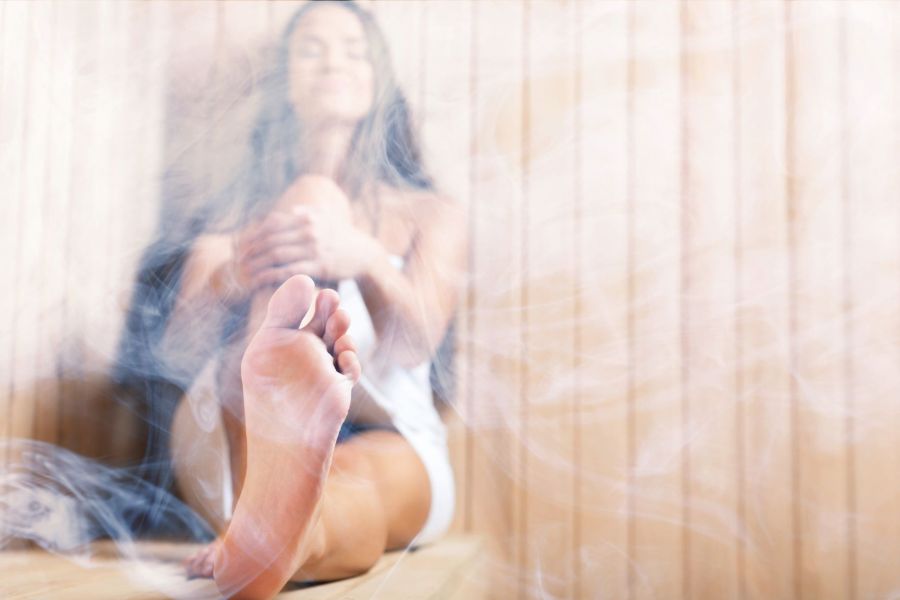Get ready to fuel your workouts, improve your health and speed up muscle recovery, thanks to the many sauna benefits for health, fitness & wellness…
Related: Post-workout nutrition – what to eat after exercising
Health benefits of saunas
Most people head to the sauna for a dose of calm, or maybe to ease a few aches and pains, but if you knew the full extent of their benefits, you’d probably move in. Dry heat rooms, used for centuries in Finnish and Swedish communities, have some serious health credentials, including a reduced risk of high blood pressure, improved lung function and proven benefits for cognitive health.
The science-based evidence for heart health has long been established. Indeed, a review of 40 studies involving 3,855 participants in the journal Evidence-based Complementary and Alternative Medicine reports that regular sauna use reduced the enlarged heart size of people with congestive heart failure, improved arrhythmia (irregular heartbeat) and cut the risk of sudden death from heart attack by 63 per cent. Research shows they’re good for cognitive health, too, with one study reporting a 66 per cent reduction in dementia risk.
When it comes to fitness, saunas are good news – improving oxygen saturation during exercise and increasing workout time post heat session, even boosting the function of your powerhouse cells, the mitochondria, by 28 per cent. Add to this proven benefits for pain relief and their undoubted usefulness for post-workout recovery and you can see visiting the sauna is a valuable addition to your training plan.
Related: How to beat a fitness hangover – post-workout recovery tips

How saunas work
Often housed in small wood-panelled cabins, saunas provide dry heat at between 65°C to 90°C. The intense heat exposure raises your skin and core body temperature, and your sympathetic nervous system (fight or flight response) kicks in along with other mechanisms, increasing heart rate, blood flow and sweating in an attempt to regulate your temperature. Your muscles relax, you feel more alert and less sensitive to pain.
On a cellular level, the effects include reduced oxidative stress and inflammation. It’s also believed the heat stress your body experiences in a sauna improves its functionality and/or tolerance to more severe challenges in a similar way to exercising. Finally, adding essential oils into the air brings additional benefits – eucalyptus, for example, can help clear the airways, while pine can leave you feeling refreshed and energised.
Try sauna therapy yourself
You probably know to replenish lost fluids with plenty of water. However, there’s a few other things to bear in mind when having a sauna. Don’t drink alcohol before or during a session due to its dehydrating effects.
Be sure to also keep sessions short, around 10 minutes (most people do two or three sessions in a row). If you’re lying on the upper benches where temperatures are hotter, return to sitting lower down for the last one-to-two minutes of your session to acclimatise your body to being vertical before heading for a cooling shower or plunge pool.
WF editor Sarah Sellens tried a ‘saunagus’ at leading sports and active leisure resort Club la Santa, in Lanzarote. It involved a ‘gus master’ placing ice infused with essential oils on the hot stones before fanning heat around the sauna. ‘The wafts of aromatic heat that swept over me felt deeply therapeutic,’ says Sellens. ‘Each block of sauna-time lasted for seven minutes. This was then followed by an optional plunge in the ice pool or swim to cool down. And while it sounds intense, I don’t think I’ve ever felt so rejuvenated.’
Saunagus at the Club la Santa Wellness Centre costs €25. For information, call 0161 790 9890 or visit clublasanta.co.uk
Words: Eve Boggenpoel | Images: Shutterstock







